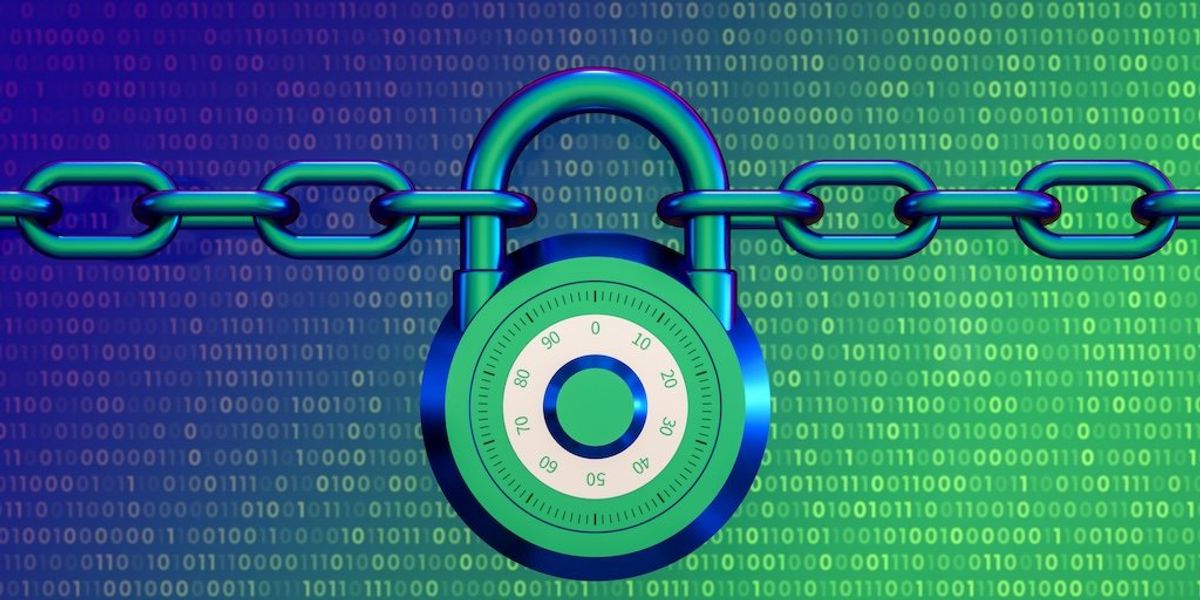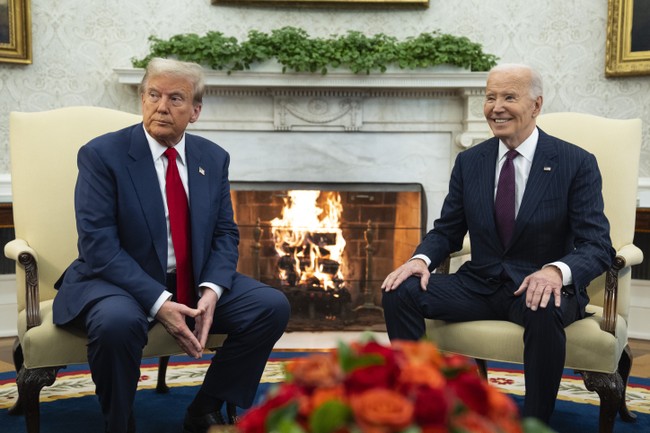

America is on the edge of a financial cliff, and Washington’s so-called “solution” is yet another clever ploy that could further centralize power and lead to a reduction in freedom.
The latest scheme is a bipartisan bill dubbed the Genius Act. The U.S. Senate passed the bill on Tuesday by a vote of 68-30. The bill now moves on to the House, where its prospects are less clear.
It’s time for the right to sound the alarm and reject the Genius Act — at least until it offers protections for individual liberty.
Supporters of the law claim it will modernize digital finance by issuing new regulations for stablecoins, shoring up assets currently used by millions of people worldwide.
But the legislation comes with serious threats to liberty as well. It could ultimately become a backdoor way to create a digital dollar, one that offers minimal privacy protections and is easily controlled by massive institutions unaccountable to voters.
What is the Genius Act?
Officially named the “Guiding and Establishing National Innovation for U.S. Stablecoins Act,” the Genius Act aims to bring order and credibility to the booming stablecoin market.
Stablecoins are cryptocurrencies tied to supposedly “stable” assets like the U.S. dollar. USD Coin and Tether — two of the most widely used — circulate more than $200 billion combined.
The bill creates a regulatory framework for stablecoin issuers, allowing them to operate under either state or federal supervision. Lawmakers believe this approach will boost credibility with consumers and financial institutions.
The legislation also forces issuers to disclose their reserve assets, submit to public audits, and comply with the Bank Secrecy Act. That law requires financial entities to implement know-your-customer protocols and anti-money-laundering measures — rules that many stablecoin issuers currently avoid.
Most importantly, the Genius Act would force issuers to back their coins with liquid assets, such as U.S. dollars and Treasury securities. For example, for every USD Coin distributed, the issuer would need to maintain $1 in reserves or Treasury bills of equivalent value, ensuring that users can always exchange their stablecoins for dollars.
The Genius Act has drawn broad bipartisan support on Capitol Hill. Lawmakers from both parties praise its regulatory ambitions. But behind the applause lie serious risks.
Programmable money vs. financial freedom
The bill lays the foundation for a programmable digital currency system — one that lacks basic protections for privacy and liberty.
By granting stablecoins federal recognition and placing them under strict oversight and reserve rules, the Genius Act effectively turns them into government-blessed digital dollars, even if the federal government doesn’t issue them directly.
That might sound like progress — if the bill actually protected consumers. But it doesn’t.
The legislation includes no safeguards to prevent stablecoin issuers from linking usage to social credit systems, such as ESG scores, or restricting legal but politically disfavored transactions. These programmable currencies could easily reflect the ideological preferences of their creators.
RELATED: A brutal wake-up call from America’s most powerful banker
 Photo by Al Drago/Bloomberg via Getty Images
Photo by Al Drago/Bloomberg via Getty Images
Want to donate to a political cause that a stablecoin company opposes? Expect a digital roadblock. Want to buy red meat, a gas-powered car, or anything else that fails to meet an ESG benchmark? Your money might simply stop working.
That’s not science fiction. That’s the likely outcome if Congress fails to add robust consumer protections to the Genius Act.
A forced hand
No one needs to use stablecoins — at least not yet. The Genius Act doesn’t eliminate traditional dollars. For now, consumers still have alternatives. But that could change quickly.
Stablecoins regulated by the U.S. government offer clear advantages over traditional currency. They move instantly, cost little or nothing to send, and operate around the clock. Because they’re digital, they require no physical infrastructure to create or distribute.
In nearly every respect, government-regulated stablecoins outperform paper money. Once the U.S. government legitimizes them and guarantees their safety, adoption will surge.
As usage grows, demand for traditional dollars could shrink. The companies issuing stablecoins would gain enormous control over economic life. Financial institutions could even begin phasing out physical currency, leaving those who resist digital money with no practical alternative.
That’s why Congress must include strong protections for individual liberty in any bill that accelerates stablecoin adoption. Without those safeguards, Americans may one day wake up to find their economic freedom coded out of existence.
A boon for Treasurys
One of the primary reasons so many in Washington support the Genius Act is that it would increase demand for Treasury bills, which helps the federal government finance its massive debt.
The Genius Act would require stablecoin issuers to back their currencies with cash or U.S. Treasurys. Of the two options, Treasury bills often make more sense for the companies issuing stablecoins. Why? Because Treasury bills pay interest.
Washington is drowning in red ink. With over $36 trillion in national debt and counting, the government desperately needs someone to keep buying its IOUs. Stablecoins could offer a trillion-dollar solution. By 2028, the Treasury Department estimates that stablecoin issuers could hold up to $1 trillion in Treasurys, so long as legislation like the Genius Act becomes law.
The Genius Act isn’t primarily about innovation. It’s about bailing out a bankrupt government.
Who’s pulling the strings?
Even more troubling is who stands to benefit. Major players behind these stablecoins include BlackRock, Fidelity, and other financial giants with deep ties to the globalist ESG agenda and organizations like the World Economic Forum. These aren’t neutral actors. They are ideological enforcers with an appetite for control.
Are these the people we want managing the digital currency of the future?
Are these the institutions we trust to safeguard our freedoms?
It’s time for the right to sound the alarm and reject the Genius Act — at least until it offers protections for individual liberty. If we do not act now, we may soon find ourselves in a nation where every transaction is tracked, every purchase scrutinized, and every dollar you “own” is merely rented from a system that can revoke your access with the flick of a switch.
.png)
 4 hours ago
2
4 hours ago
2















 English (US)
English (US)